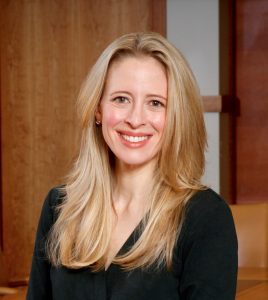The Wisconsin Fair Dealership Law Enters Its 50th Year: Novel Applications
The Wisconsin Fair Dealership Law (WFDL), found in Chapter 135 of the Wisconsin Statutes, extends good cause, proper notice, and cure protections to an “extraordinarily diverse set of business relationships.” The WFDL’s litigation history illustrates the eclectic mix of relationships protected by the statute, including alcohol distributors, forklift resellers, custom log home distributors, water spa resellers, school photographers, and virtually everything in between. (See our earlier post about the limited exceptions to the Wisconsin Fair Dealership Law’s applicability.) That said, many are shocked to learn that municipalities and nonprofit organizations also fall within the WFDL’s scope.
In Benson v. City of Madison, the Wisconsin Supreme Court raised eyebrows when it held that the City of Madison’s contractual relationship with its municipal golf professionals was subject to the WFDL, meaning the golf professionals could lay claim to the statute’s protections. 2017 WI 65, 376 Wis. 2d 35, 897 N.W.2d 16. On a matter of first impression, the Supreme Court took a textualist approach to deciding whether the City fell within the WFDL’s definition of a “grantor,” which means “a person who grants a dealership.” In making that determination, the Court turned to the statute’s definition of a “person” which includes “a natural person, partnership, joint venture, corporation or other entity” The Court noted that under Wisconsin law municipalities are “corporations” such that the WFDL must reach cities. In a footnote, the Court noted that the “other entity” language may extend the statute even further to other governmental units. For more on the decision, check out our 2017 blog post, “Wisconsin Supreme Court Decision Raises Fair Dealership Law Questions Beyond Municipal Liability.”
While the Benson decision surprised many, almost a decade earlier, the Seventh Circuit had extended the WFDL’s protections to the Manitou Council of the Girl Scouts of the United States in a suit against the national Girl Scouts organization. Girl Scouts of Manitou Council, Inc. v. Girl Scouts of U.S. of Am., Inc., 549 F.3d 1079 (7th Cir. 2008). There, the Seventh Circuit reversed a district court’s finding that to consider the Manitou Council as a “dealer” under the WFDL would “improperly expand” the definition because of its nonprofit status. In its decision, the Seventh Circuit rejected the national Girl Scouts argument that the statute could not apply to a nonprofit organization, analyzing instead whether the parties’ relationship met the statutory dealership test—i.e., whether (1) a contractual relationship existed (2) in which the council could distribute or sell Girl Scouts products or services or make use of Girl Scouts marks (3) and a community of interest existed. Having found that all three elements were met, the Seventh Circuit reversed and instituted an injunction during the pendency of the parties’ litigation.
Benson and Girl Scouts are reflective of the same policy embodied by the WFDL: at the end of the day, the WFDL exists to protect Wisconsin businesses reliant on their relationships with other entities from unfair treatment, regardless of whether that relationship embodies a typical distribution arrangement, a municipal contract, or a nonprofit’s dealings with other parties. Both the Benson and Girl Scouts decisions exemplify that the WFDL is one of the, if not the, strongest dealership laws in the country.
The extent to which the WFDL applies is an evolving area of law, and for over 50 years, Stafford Rosenbaum’s Dealership and Franchise Law Team has been preeminent in helping grantors and dealers navigate their obligations under the WFDL and the franchise and dealership laws of other states. If you or your organization needs advice or representation on a Wisconsin Fair Dealership Law matter, we have the experience and capacity to help—call us at (608)256.0226.
Stafford Rosenbaum LLP is a full-service law firm with two convenient office locations in Madison and Milwaukee, Wisconsin. 145 years of dedication to businesses, governments, nonprofits, and individuals has proven that effective client communication continues to be the heart of our practice.




